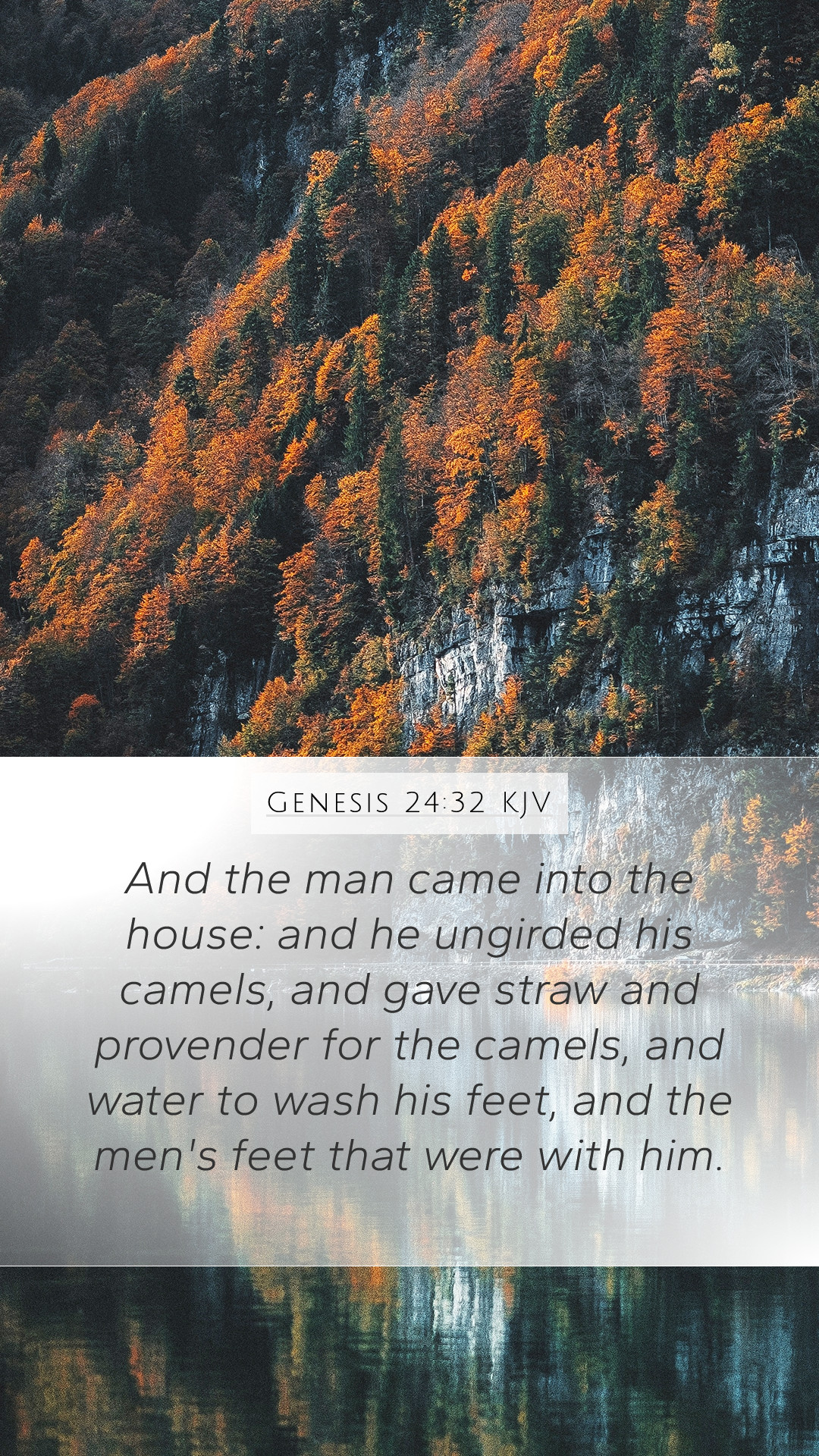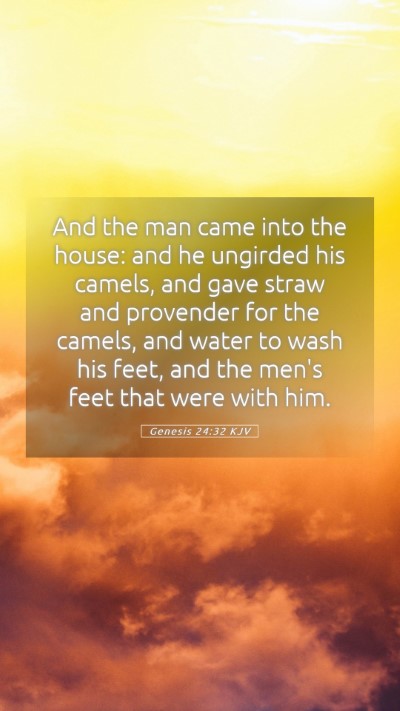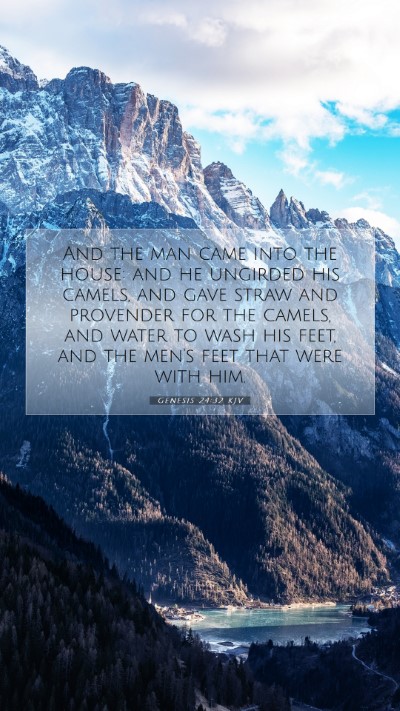Understanding Genesis 24:32
Genesis 24:32 states:
"And the man came into the house: and he ungirded his camels, and gave straw and provender for the camels, and water to wash his feet, and the men that were with him."
This verse plays an important role in the overall narrative of Isaac’s marriage to Rebekah, as well as illustrating customs and practices of hospitality in that time. Below is a detailed explanation and analysis of this verse, drawing insights from various public domain commentaries.
Bible Verse Meanings and Interpretations
In Genesis 24:32, we observe several significant elements that contribute to its meaning:
- Hospitality: The actions of the servant reflect the ancient Near Eastern custom of hospitality, which was an integral part of daily life. According to Matthew Henry’s Commentary, this act of welcoming the servant and his camels is an illustration of how important it was to provide for travelers.
- Servant Leadership: The servant’s approach shows humility and diligence. As Albert Barnes points out, this reflects his commitment to fulfilling the mission entrusted to him by Abraham, demonstrating that the servant bears not just physical provisions, but also a task of significance.
- Provision for Needs: The verse highlights how needs were met, emphasizing the generosity and readiness to aid others. Adam Clarke elaborates on the significance of offering water and care for the camels, which signifies thoroughness in service.
Biblical Exegesis and Commentary
This verse is best understood in its context within the narrative of Genesis 24. After a long journey, the servant arrives at Nahor, Abraham's homeland. The detailed actions he takes upon his arrival reveal cultural practices of the time.
The practice of washing feet was common in that era, symbolizing cleanliness and respect. Matthew Henry notes that such provisions were part of establishing fellowship and goodwill. It is also significant to note how the servant ensures both his own comfort and that of his camels, highlighting his responsibility in service.
Scripture Analysis
The verse stands as a bridge connecting the divine directive given to Abraham regarding a wife for Isaac and the fulfillment of that plan through the servant’s actions. It's a moment that showcases faith in action, as the servant has prayed for guidance on this journey and prepares for the outcome.
Application of Genesis 24:32 in Daily Life
There are several applicable lessons we can derive from this verse:
- Embrace Hospitality: Just as the servant is welcomed and cared for, we too are called to extend hospitality to others in our lives. This is a fundamental aspect of Christian living.
- Be Diligent in Our Tasks: The servant's commitment serves as a reminder to pursue our responsibilities with dedication and integrity. Just as he sought to follow Abraham’s instructions, we can seek to fulfill the callings we have in our lives.
- Meet Needs Thoughtfully: The attention given to the camels exemplifies the importance of being mindful of the needs of others, whether they be physical, emotional, or spiritual.
Cross References
For a deeper understanding, consider the following cross-references:
- Genesis 18:1-5: The hospitality shown to angels by Abraham, parallel in cultural significance.
- Genesis 24:10: The servant’s preparation for his journey to find a wife for Isaac.
- Genesis 29:1-3: The customs of watering flocks, which further highlights the importance of caring for animals in the culture.
Conclusion
Genesis 24:32 serves as a rich source for Bible study insights and highlights critical themes of hospitality, service, and faithfulness. By understanding these elements, we can apply the lessons from this verse to our modern lives, reminding us of the timeless principles found throughout Scripture.


